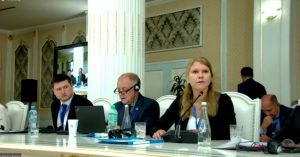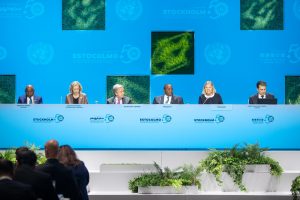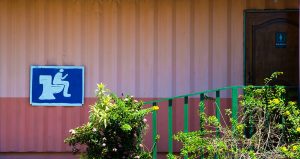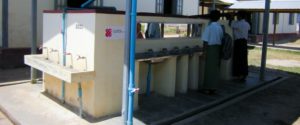- SIWI – Leading expert in water governance
- /
- Latest
- /
- Coordinating the Water and Sanitation COVID-19 Response in Ecuador
Coordinating the Water and Sanitation COVID-19 Response in Ecuador
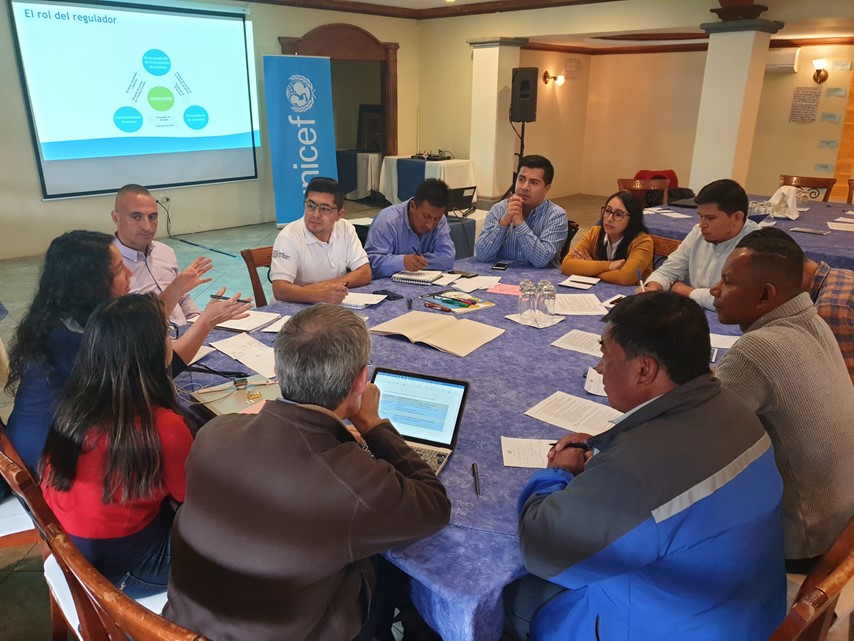
As part of our UNICEF LACRO programme we have provided technical assistance to the Ecuador UNICEF country office since late 2019. This article summarizes the months of work which has resulted in the creation of many products including the WASH Response Plan for COVID-19, the Standard Operational Framework for the Technical Working Group of the Emergency Operations Committee, and the elaboration of the WASH Post-Disaster Needs Assessment (PDNA). This blog highlights the key outputs, and many lessons learned throughout the process.
This article describes a collaborative effort led by the ‘Water and Sanitation Technical Working Group’ (MTT being its acronym in Spanish) of the Ecuador Emergency Operations Committee (MTT-1) to monitor, review, assess, and improve the WASH COVID-19 response at the national level. A variety of WASH stakeholders, together with relevant actors from other sectors (e.g., Public Health and Education), were engaged throughout the process, which was facilitated by UNICEF and the Stockholm International Water Institute (SIWI) during the first six months after the pandemic was declared, from April to September 2020. This response process built on a previous WASH sector bottleneck analysis, which was carried out at the end of 2019 and represented a major milestone in the development of plans for a more articulated and coordinated WASH sector in Ecuador.
The unprecedented declaration of a nationwide sanitary emergency in Ecuador in March 2020 activated the sectoral response mechanisms, as established by the national Committee for Emergency Operations (COE, its Spanish acronym). The COE is organized into eight technical working groups, with MTT-1 coordinating the response in the water, sanitation, and solid waste sector. It is tasked with creating the enabling environment for all WASH stakeholders to work together in the prioritization of the provision of safe water, sanitation, and hygienic conditions for everyone. Under this framework, UNICEF and the WASH cluster have provided technical assistance to the governmental sector institutions for ensuring a coordinated and coherent response to the emergency, which has included a diverse range of measures, initiatives, and actions. In Ecuador, the response has aimed to address the needs of the population which have arisen during the pandemic and the subsequent confinement and mobility restrictions, paying special attention to the needs of those in vulnerable situations, including populations on the move due to the migration crisis.
Before the crisis, the WASH sector in Ecuador faced a variety of challenges to provide sustainable and quality services for all, as identified in the National Drinking Water and Sanitation Strategy (ENAS, being its acronym in Spanish) (SENAGUA, 2015). These challenges include insufficient service coverage, mainly in rural areas, and poor quality of services, specially related to water quality and continuity of water services.
According to the latest data from the National Institute of Statistics and Censuses (INEC, being its acronym in Spanish), roughly one third of the Ecuadorian population does not have access to safely managed water services (Moreno, et al., 2020).
Access to sanitation is even more precarious as only 40% use safely managed services, 6% of the existing sanitation services are classified as unimproved, and 2% of the population still practice open defecation. The availability of a handwashing facility within premises with soap and water is about 90%. More than 3% of the households have no hygiene facility. In total, only 23% of the population has simultaneous access to water, sanitation, and hygiene (INEC, 2019).
Regional mapping of national and local WASH measures in response to the COVID-19 pandemic
At the onset of the pandemic , SIWI, together with UNICEF, developed an analytical framework to map 58 possible WASH responses being taken by sector stakeholders in different countries, as shown in Figure 1 below. This helped gain an understanding of how the sector was performing and reacting to the crisis, and how the situation evolved over time. In addition, the framework was adopted by the national coordination platforms in 10 countries of the Latin America and Caribbean region, and it proved to be a useful tool to structure the discussion around WASH response at country level.
|
|
 |
| Figure 1: Covid-19 WASH Response Mapping target areas Source: (SIWI, 2020a) |
Figure 2: Mapped measures in Latin America Source: (SIWI, 2020a) |
Review of the WASH COVID-19 response in Ecuador
Ecuador applied this framework through a structured discussion to identify both the strengths and gaps of the response, and prioritize those initiatives needed to secure access to WASH for all (short- and mid-term), as well as to increase the resilience and sustainability of services in the long-term. This process showed that Ecuador had been active in 34 out of the 58 mapped response measures (Figure 2). This was the starting point for ten weekly sessions of remote technical support for the actors of the MTT1 which resulted in the development of various documents presented below.
Results
- WASH Response Plan for COVID-19: The Plan presents a comprehensive list of measures and initiatives that WASH stakeholders are implementing in the COVID-19 response, to ensure access to WASH services for all. They are classified within the four target areas of the analytical framework. Each measure is developed in detail, and includes the main steps for implementation, start and end dates, level and type of cost, responsible lead actor, and any need of external support. It therefore provides a simple but complete monitoring guide to follow-up and assess the response; its strengths, and its gaps.
- Strategic Operational Framework (SOF) – in Spanish : The SOF provides an overarching ‘frame of reference’ for all sector stakeholders who aim to improve the effectiveness and sustainability of the emergency action during the WASH COVID-19 response. The framework document outlines policies, principles, accountabilities, ways of working, strategy, objectives, standards, indicators, and timelines, to enhance sector coherence and render the response more effective and efficient. The SOF therefore includes all ‘operational’ aspects of ‘how the sector should work’ in the specific COVID-19 context in Ecuador, in furtherance of a collective ideal. As a result, the document allows sector partners to develop strategies according to their own mandates, capabilities, capacities, and comparative advantages, while at the same time providing a roadmap for coherent planning, evaluation, and monitoring.
- WASH Post-Disaster Needs Assessment (PDNA) – PDF: The COE, in collaboration with UNDP and other partners, decided to conduct a national rapid assessment of the effects and impacts of the sanitary emergency on essential services and sectors, including the productive, security, and social sectors, as well as critical infrastructure, during the period between March and May 2020 (SNGRE, 2020). To assess the WASH-related impacts of COVID-19, UNICEF and SIWI provided support to the Ministry of Environment and Water to consolidate the knowledge and evidence already generated during the working sessions on the response plan and Strategic Operational Framework. It was primarily based on a joint review and assessment of the COVID-19 impact on the sector and services, with the aim of producing an actionable and sustainable recovery strategy for mobilizing financial and technical resources.
 Key learning outcomes
Key learning outcomes
The following points summarize the set of lessons learned throughout the process, which are described in more detailed in a separate publication. These considerations can be useful if other countries seek to replicate similar processes, at national or subnational levels.
- The importance of ownership of the whole process by a core group of key stakeholders, which in turn will facilitate endorsement of all agreements made.
- UNICEF’s convening power offered its organization’s strengths, including its coordinating capacity, its impartiality, and its ability to provide the best WASH sector expertise.
- Ensuring multi-stakeholder and participatory dialogue produces active engagement and commitment of all relevant stakeholders, which is essential to address complex challenges by identifying the best and most feasible solutions.
- A variety of tools and IT-based approaches should be in place to facilitate dialogue, participation, and consensus building (e.g., plenary sessions and breakout rooms, polls, on-line surveys, document repositories, etc.).
- The pandemic has elevated the importance of prioritizing an efficient delivery of WASH services beyond the household, especially in health care facilities (recognizing the important role which hygiene and handwashing plays in preventing infections, saving lives, and improving quality of care).
- The COVID-19 pandemic has emerged as an opportunity to address, maintain, and further strengthen the existing coordination mechanisms within the WASH sector and with other sectors.
- Appropriate accountability and monitoring mechanisms increase the chances of the agreed measures and initiatives being implemented. These mechanisms should cover the follow-up of the implementation of the activities, with responsibility assigned to participants to take them forward.





